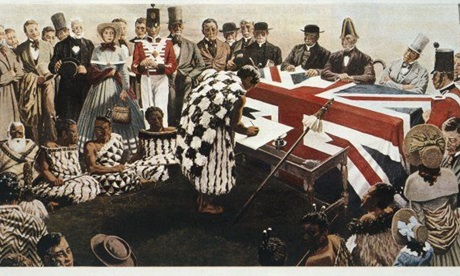Catholic Bishop Jean Baptiste Pompallier’s question to Governor William Hobson – and his response – concerning the Crown’s care of Māori should be enshrined as the Treaty of Waitangi’s fourth article.
So theologian Alistair Reese told Parliament’s Petitions Committee last week.
The written text of the Treaty – Te Tiriti o Waitangi – includes a preamble and three articles.
History speaks
Reese told Parliament that when Pompallier (the country’s first Catholic bishop) put his question about Crown Care of Māori, Hobson was negotiating Te Tiriti on behalf of the Crown.
The Catholic bishop was concerned that Catholicism might receive little sympathy in an English colonial New Zealand.
Pompallier asked “whether the natives who joined the Catholic Church would be looked after by the Crown”.
“And that sent Henry Williams, the [Methodist] translator and mediator of the Treaty, and Governor Hobson into a bit of a huddle” Reese told MPs.
“Hobson is reported to have responded ‘Oh, most certainly’. And that if Pompallier had asked him this earlier, his ‘desire should have been embodied in the Treat’.”
William Colenso, who was also present during the Treaty negotiations, then wrote out an undertaking in te reo Māori and English that was read out to the assembled rangatira:
“E mea ana te Kawana, ko nga whakapono katoa, o Ingarani, o nga Weteriana, o Roma me te ritenga Maori hoki, e tiakina ngatahitia e ia.”
This translates as: The Governor says the several faiths of England, of the Wesleyans, of Rome, and also the Māori custom, shall alike be protected by him.
The petitioners
Besides Reese, the petition was developed with two kaumātua who have since died – Patrick Nicholas (Pirirakau, Ngāti Hangarau) and Hukikakahu Kawe (Ngāi Te Ahi, Ngāi Tamarāwaho, Ngāi Te Rangi).
Their petition argues that the Treaty was an oral undertaking for Māori who signed it. It was not read by them, but read out to them.
An oral contract is just as binding as a written one, the petition says.
That being the case, Hobson’s other – oral – undertaking, which was also read to Māori, should have equal status and should be included within our understanding of the Treaty.
Freedom of religion
The New Zealand Bill of Rights already includes a specific right for the freedom of religion.
But Reese wants this right added to the Treaty because it’s “a matter of integrity” he says.
“It’s a matter of laying the moral foundation for the nation. Then all our experts, laws, lawyers, theologians, academics and iwi Māori can gather around and say, ‘Ah, this actually has an impact upon the very identity of who we are as a people’.
“So I think that there’s a lot to talk about, and we shouldn’t be short-circuited because someone’s said ‘Oh, that’s already taken care of’.”
He hopes his petition will be included in discussions about the ACT Party’s Treaty Principles Bill which seeks to enshrine meanings on all aspects of Te Tiriti o Waitangi in legislation.
Source
